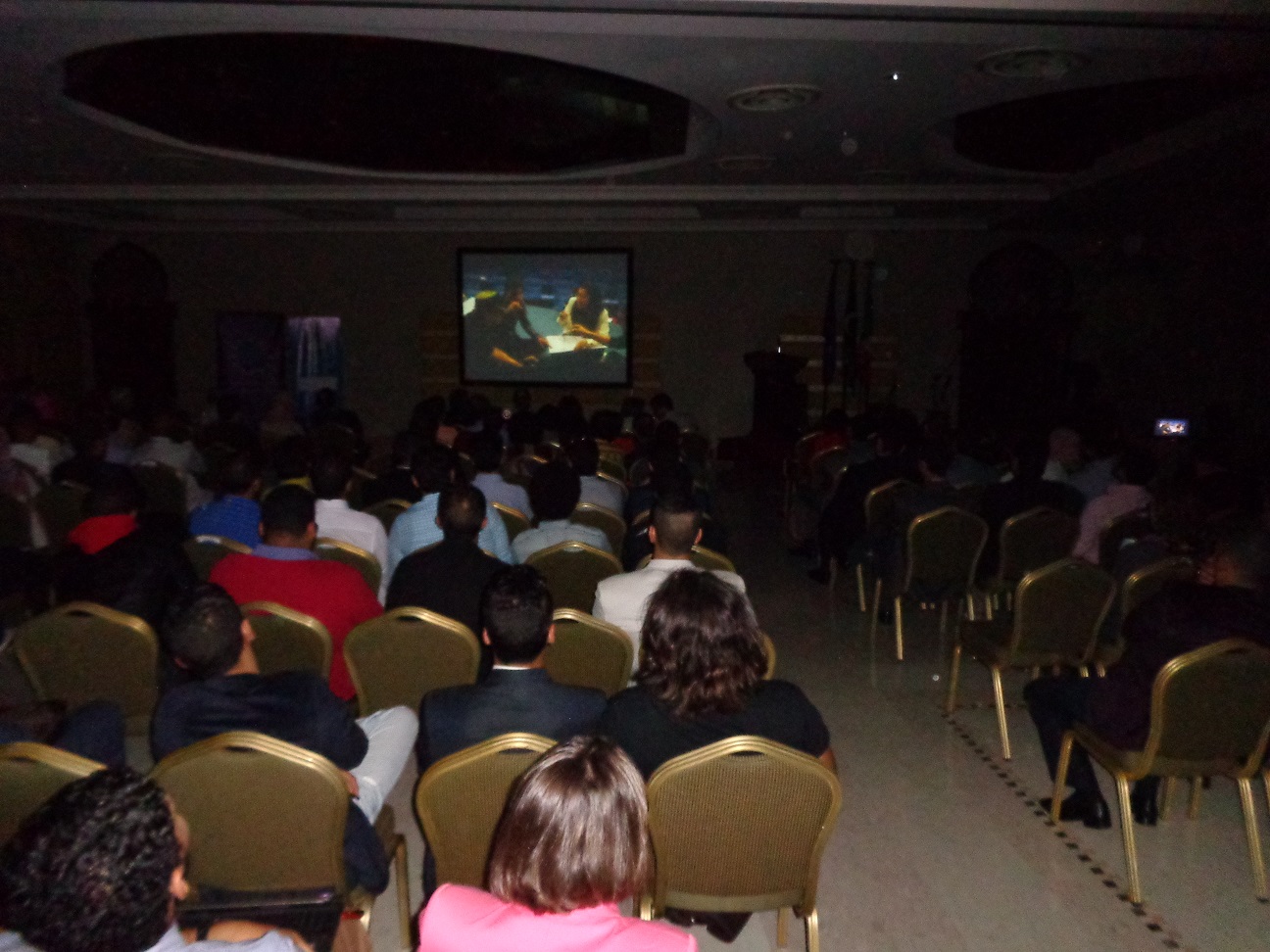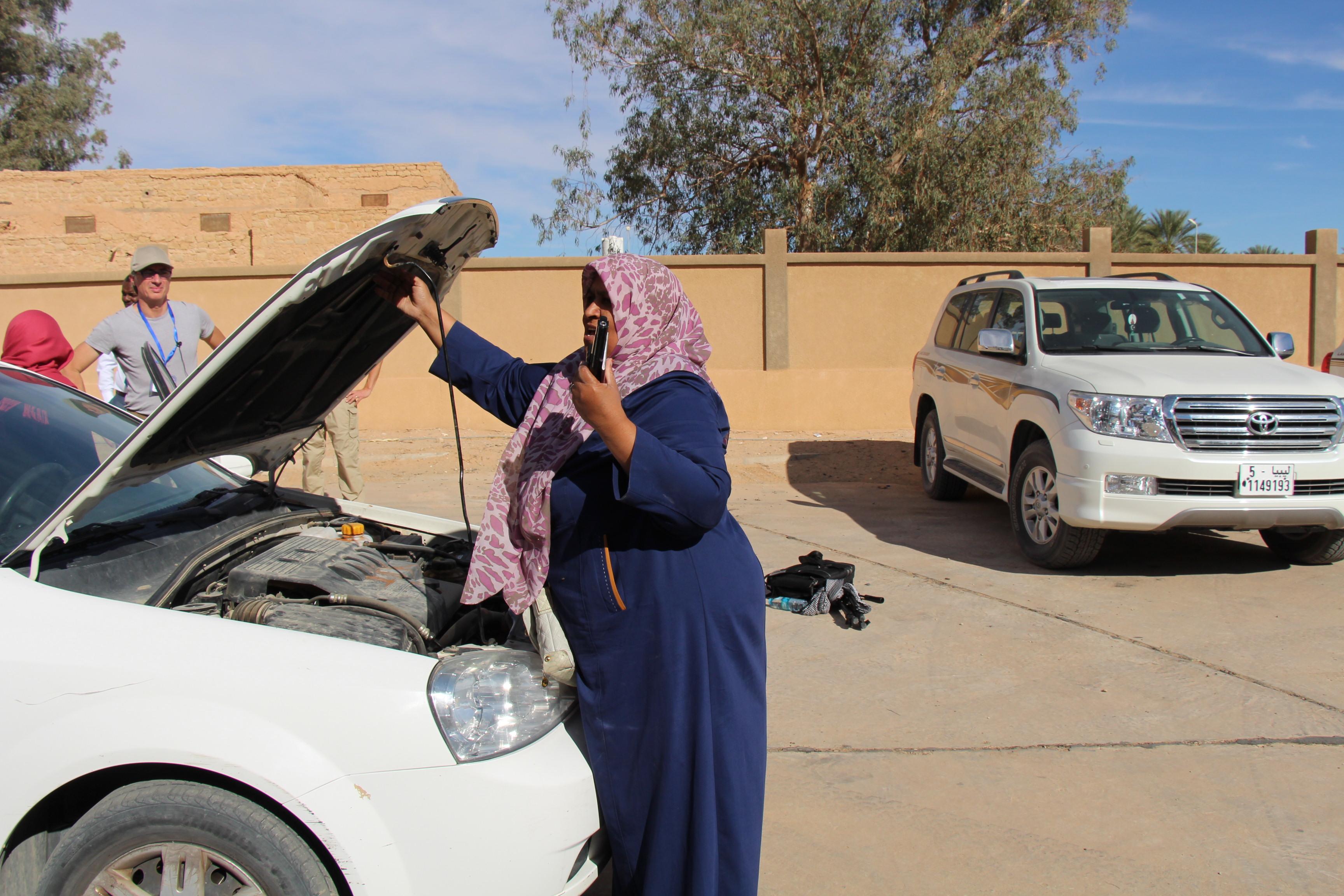By Sami Zaptia.
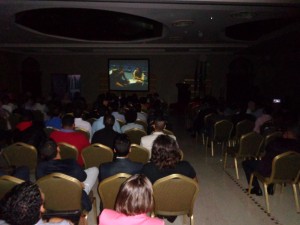
Tripoli, 10 November 2013:
The Libya Movie Awards finally came to their conclusion at an event held at the Corinthia . . .[restrict]hotel last night, some seven months later, having been interrupted by a security scare last April.
Libya’s first post-revolution film festival for up-and-coming young Libyan filmmakers had been hastily stopped last April on its second of three days after the hotel hosting the event, the Mahari Radisson-blue, had received a credible security threat.
Last night, the films that made it through to the final eight, on topics of; lost hope, street art, women talk, sharing, torture, living a dream, the outbreak of the revolution and boxing, were featured.
Living the Dream won third place, Revolution in overall second (but first of the amateur films), and the female professional film-maker Naziha Aribi’s Between the Ropes winning the overall first prize.
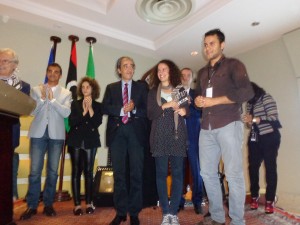
Opening the festival, the director of the Italian Cultural Institute, Rubens Piovano, told the audience that he was impressed with the around 400 people who turned out to the initial event in April and equally impressed by the organisers’ ability to have collected over 80 movies from all over the country. “Libya needs to put culture in the hands of its youth instead of guns”, he commented.
The Minister of Culture, Habib Lamin, for his part said that “dreams do not come true by just dreaming. They need hard work and self-development. Arts and culture will not be directed by the government anymore as innovation needs freedom, and we have freedom now”.
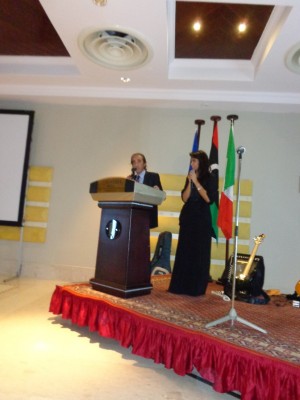
“Your dreams are bigger than me and the Ministry”, Minister Lamin explained. “They need more than a year. I expect that the next Minister will have more opportunity and budgets to achieve. Ideas need time and budgets. We were prevented from achieving our dreams”, the Minister of Culture concluded.
Ville Vanjola, giving the speech on behalf of the head of EU Libya delegation, said that “cinema can capture the dreams of millions of people around the world. It makes us realize we share some aspirations. It is a bridge between people and cultures, which is needed here today more than ever. Cinema is a cornerstone of free speech. The films here today reflect the many voices of Libyans. These voices existed before but now we can hear them”.
After the formal speeches the audience of nearly 200 people were shown snippets of the films that did not make the list of eight finalists. This was then followed by a musical break by Fuad Gritli and his band, which got the audience in a foot-tapping and clapping mood – to the extent that the band threatened to overshadow the film presentations.
The Libya Movie Awards were jointly organized by the EU delegation, the Italian Cultural Institute and the Libyan NGO 1Libya and the organisers hoped the awards would become an annual event. [/restrict]
